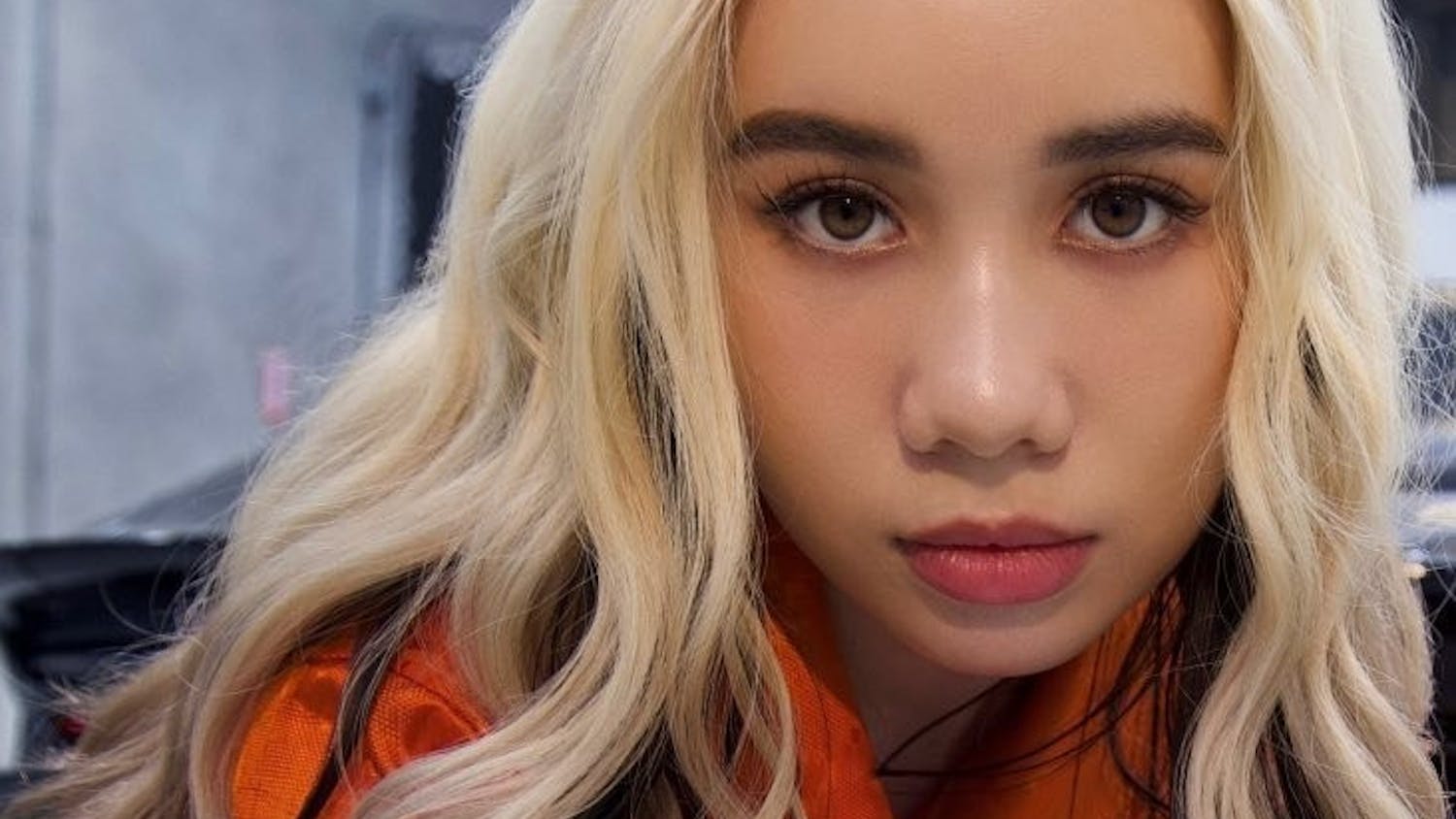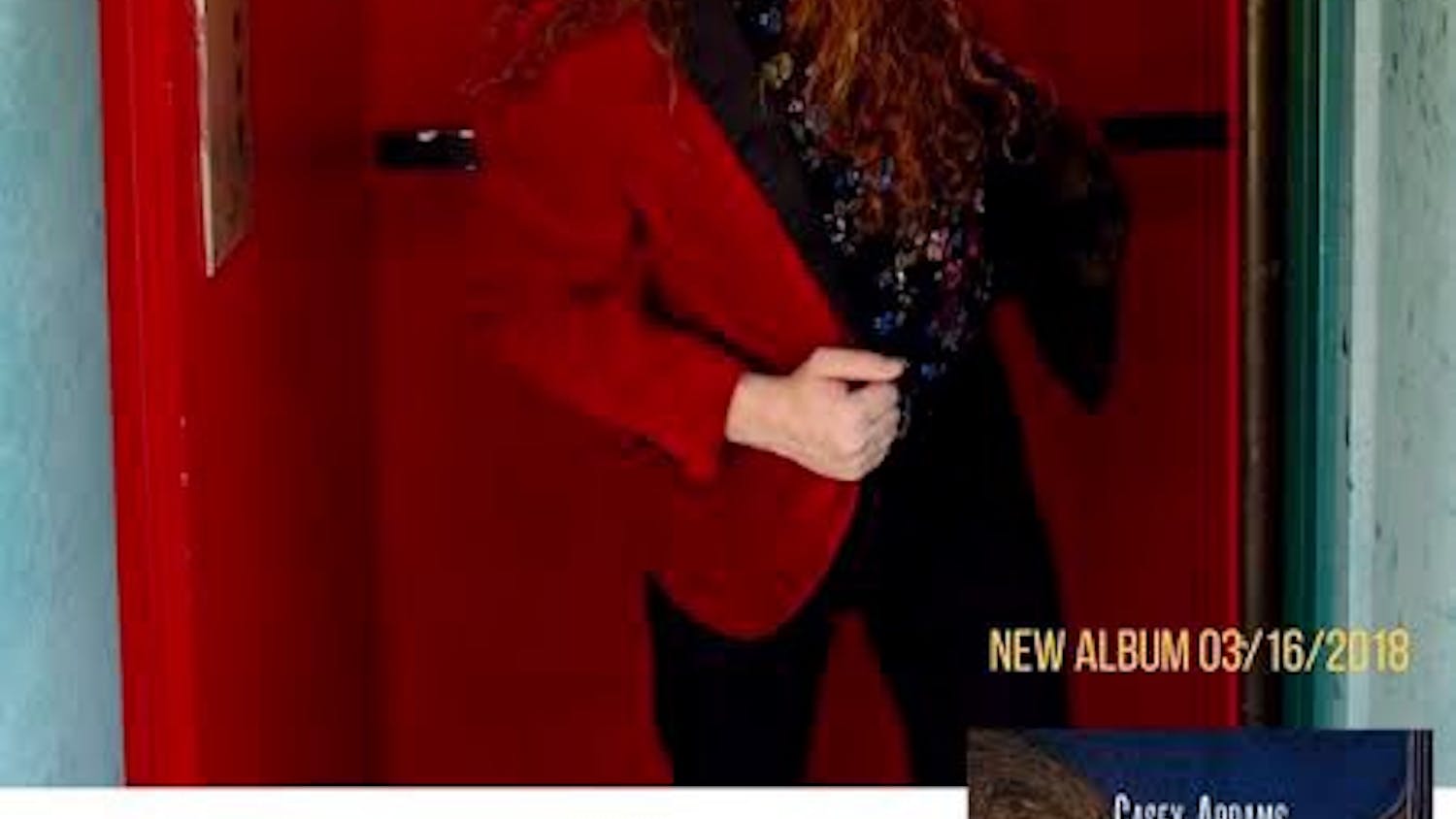Short, one of the many rappers who hail from Buffalo, has been writing verses since he was 14 years old. Now 24, he's getting ready to release his second EP entitled O.U.R.
He explained that the backronym represents Queen City's struggle.
"[People] don't think there's something that could come out of Buffalo that's significant," Short said. "That's the thing I said about Buffalo - the underdog. 'Only Underdogs are Remembered'...we're the underdogs, we know that we're the underdogs. We're the Bills, we're the Sabres, we're everything."
The aforementioned sports teams are known for their supportive fan base, unlike the Buffalo rap music scene.
Many people involved in the local hip-hop community believe that it has more than enough talented artists. However, there has yet to be a hip-hop artist to successfully break into the mainstream. Followers have attributed a variety of factors as to why.
Derrick Jackson, Buffalo rapper's G5GI's manager, theorized that the lack of prominence in the hip-hop scene stems from the famed Wu-Tang Clan concerts back in the '90s. G5GI explained that rappers Method Man and Redman would crowd surf while passing out marijuana during their performances. This recklessness led the mayor of Buffalo to ban the outfit, according to Jackson.
Even though the ban has been retracted, Jackson explained that the perceived stigma left by those concerts hasn't changed. He describes the stereotype as "ratched" - a term that describes undesirable urban traits.
"A lot of venue owners steer away from hip-hop and hip-hop acts because of the stigma behind it...fighting, stabbing, shooting, stuff like that," said Valentino Shine, a member of promotions group After Dark Entertainment. "And all the shows that I've booked thus far haven't had any of that."
Shine has hosted numerous hip-hop concerts at venues such as Broadway Joe's. He explained that these concerts usually draw in a diverse crowd, instead of the stereotypical thuggish audience.
Physical altercations are a rarity in hip-hop shows. A particularly tragic case of such violence was correlated with the death of Javon Jackson in 2009. The recent UB graduate was walking from a party near Main Street when he was gunned downed because of a prior scuffle.
The fact that hip-hop was being played at the party furthered the negative stereotype.
"Venue owners became even more standoff-ish because they unfairly associated the incident with the hip-hop/urban demographic," Jackson said. "Unfortunately, you have ignorance that blinds people. Combine that ignorance with fear and that's what you get. Obviously, I have strong views on everything surrounding the events that occurred that night. But the more I speak on it - my heart goes out to his mother and his family."
DJ Noodles is the closest thing Buffalo has to a mainstream talent. The DJ was renowned in Buffalo for his work in various clubs and Wild 101, a defunct radio station. His name blew up after he moved to Florida for further opportunities. He has worked with known artists like Pitbull and currently DJ's at WiLD 94.1, a famed radio station in the Tampa Bay area.
DJ Noodles doesn't regret having to move south to gain success. In fact, he believes the lack of a definitive scene in Buffalo is actually what makes the city what it is.
"If that scene was in Buffalo, then Buffalo wouldn't be the same type of city," DJ Noodles said. "It wouldn't be the type of city that tailgates the way it tailgates on Sundays...in other cities you don't see other people going out and help people push their cars when they're stuck[when]we, as a city, went through in all those snowstorms."
However, many involved with the local hip-hop scene believe that it may be able to gain national attention if the circumstances are right.
Going Solo
Many of the talents within Buffalo aspire to be mainstream names, but a few understand that establishing their name in the Queen City is essential in doing so.
Lucky Seven, an Amherst native and member of hip-hop collective Howhood University, noted that one of the reasons Buffalo artists don't make nationwide success is the lack of unity amongst artists and their fan bases.
"The [fans] don't care to hear anybody else," Lucky Seven said. "The fans need to love and respect Buffalo artists first before we get loved by other people."
Dennis Ferry, a talent buyer at After Dark Entertainment, has seen the side effects of this sort of loyalty. He observed that a different crowd would come out to concerts as After Dark booked different artists.
It's a trend he hopes to change.
"If you're only supporting your friends that are in the game, it's not really going to build a big community of music fans here," Ferry said. "I rather really see people go out, try new things, and listen to an artist they've never heard before, than go out, see their man perform, and then leave."
Some artists have been able to draw a cult following despite the lack of home support. G5GI was able to book shows at New Orleans and recently performed at SUNY Fredonia, while rapper 7'4" (named after his height) claimed that he even had fans overseas.
However, 7'4" was still adamant about the need for unity between Buffalo fans and artists. It's necessary for him to fulfill his aspirations of becoming a legend in hip-hop.
"What I try to explain to people is that you got to come together," 7'4" said. "When you mentionNew York, they think about New York City. This is the forgotten city. You've got to build a force that can't be ignored. You've got to come together and really push each other; but everybody's ego is just too high here."
DJ Noodles noted that the scene was divided when he was still involved seven years ago. He still keeps track of what's going on while he's in Florida, and he said the scene was getting better because of the efforts of some promoters and artists.
Additionally, nationally recognized artists have been noticing local talent. A few months ago, Lucky Seven opened for A$AP Rocky at the Town Ballroom. Local rapper Jae-Skeese (who was noted by many as one of the Queen City's top talent) is set to open for Schoolboy Q at the Soundlab on May 6.
Short believes that having the opportunity to perform for such acts is crucial.
"We want these artists to come in here, perform, [and] see the talent we have here," Short said.
School Spirit
When the Hip-Hop Student Association dissolved two years ago, local rappers were left without an outlet to display their talent. The club used to host concerts and more than 50 percent of its performers were natives who were unaffiliated with the university.
Isaac Kramer, Hip-Hop SA's former president, thought that being able to expose these talents was one of the clubs main accomplishments.
"Because most of our members were not from the Buffalo area, these shows exposed the local acts to a new audience," Kramer said. "I believe performing at our events helped several acts improve their stage skills and definitely elevated the reputation of several."
The Hip-Hop SA's involvement allowed local artist Edreys Wajed to perform at the 2009 Fall Fest. SA hasn't booked a local artist for either Spring Fest or Fall Fest since Hip-Hop SA disbanded.
Jackson thought that campus involvement would be a huge boost to the local community because of how many students hail from other cities, especially New York City.
"Most of them are from the city. They come from the city and they don't really get exposed to Buffalo...It's not [their] fault," Jackson said. "That's all [they're] exposed to because you got these party promoters trying to make a buck, and they're throwing the same parties every time."
Students from the city have gained a reputation for their skepticism and blunt opinions. The Big Apple is known as the mecca of hip-hop and its natives are naturally critical against music from cities with a lesser reputation.
Omari Thompson, a junior psychology major and Harlem native, gave Buffalo hip-hop a chance. However, he believed a majority of it was unoriginal.
"The perceptions I have about Buffalo artists are the same as southern artists. Catchy hook, nice beat, whack lyrics," Thompson said. "Of course, there are some [exceptions] here and there, but the majority sounds like southern hip-hop to me."
Dela Yador, the 2005-06 SA president, thought that part of UB's purpose was to allow students to grow. However, he also stressed that a bulk of a local artist's success is his or her own responsibility.
Hip-Hop SA's departure is detrimental to local acts, but Yador believes that there are multiple avenues for an artist to get his or her voice heard.
"It's unfortunate that Hip-Hop SA isn't around anymore, but if local Buffalo rappers are only depending on Hip-Hop SA to get their music out, there's a bigger problem," Yador said. "Buffalo is bigger than just the colleges."
Confidence
There are other mid-sized cities similar to Buffalo that have artists who received mainstream success. Rapper Kid Cudi has a wide national fan base even though he came from Cleveland, a forgotten city in hip-hop lore.
Pittsburgh has Wiz Khalifa, whose most popular song - "Black and Yellow" - is a love note to his hometown. Eminem and newcomer Danny Brown have also openly represented their industrial hometown, Detroit, in their music.
Short believes that the power to finally have a mainstream Buffalo artist lies in themselves because of these examples. He's seen a lot of talented artists during his years in Buffalo, but he thinks that they lacked the one attribute that would propel them to national success.
"I don't think they believed in themselves. I don't think they believed they can do it. Look at Cleveland with Kid Cudi and Chipp the Ripper," Short said. "Those dudes believed in themselves, and they believed that they could [succeed] with their own art without conforming to anything. Artists today in Buffalo, we believe in ourselves. It's a movement."
G5GI believes that Buffalo artists are talented enough to perform on the same billing with artists like Rick Ross and Tyga.
For him, performing at such big stages should be more than just a dream.
"It should be way bigger than what it is," G5GI said. "I believe that we're in a position where we should be rocking those shows. When they do come in with the Spring Fests and Fall Fests, we should be on them. I'm not just saying that because we do music, but because we're great at what we do."
Email: arts@ubspectrum.com





